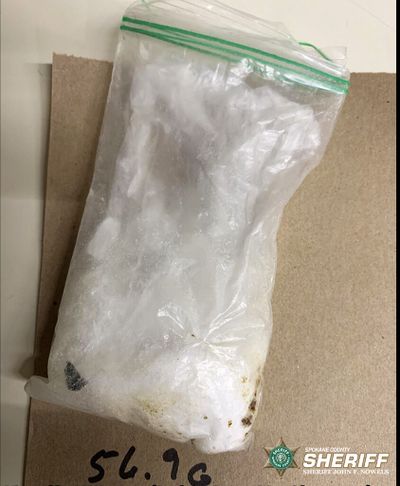Lawmakers still searching for compromise on Washington’s drug possession law as session nears end

OLYMPIA – With only two days left in the legislative session, lawmakers continued to struggle with striking a balance between treatment and punishment in a new law that would cover people arrested for some drug possession offenses.
As they worked Friday to set up a six-person committee to try to reach a compromise, 28 mayors from around the state – including Spokane, Spokane Valley, Cheney and Liberty Lake – sent them a letter blasting the current House version of the bill as lacking “adequate accountability to compel an individual to seek and complete the services they need.” They also said that version would restrict their ability to regulate the public use of drugs and will replace their effective local laws with a state law that won’t work.
“Our communities are tired of the rampant drug use and the resulting violence, vandalism and crimes that typically accompany substance abuse,” the mayors wrote.
The letter isn’t likely to affect the negotiations one way or the other, Majority Leader Andy Billig said after the Senate refused to accept the latest House version of the bill, which is considered more lenient than the version the Senate passed with bipartisan support.
“I always welcome feedback from constituents, but that letter did not change the trajectory of this policy,” said Billig, D-Spokane, adding he also does not support the House bill.
The Legislature is looking for a new way to address a 2021 state Supreme Court decision that struck down Washington’s felony drug possession statutes. At issue in the case of State v. Blake was whether a lack of requirement that the state prove criminal intent on the part of the defendant violated his or her due process rights.
In response to that ruling, the Legislature passed a new law that made possession of relatively small amounts of illegal drugs a misdemeanor, punishable by up to 90 days in jail, a $1,000 fine or both. But prosecutors were required to divert defendants to assessment and treatment for their first two arrests and may offer a treatment option for subsequent arrests.
The Senate voted to send the bill to a conference committee in hopes of striking the right balance between treatment for defendants and public safety, Billig said.
“It’s one of the most complex and consequential bills I’ve worked on,” he said. “We are deeply engaged in getting this right.”
Sen. Mike Padden, R-Spokane Valley, one of the three Senate members on the conference committee, said he would like to see a stronger bill than the version passed by the House. Local governments should also “have a say in what’s going to happen in their community,” he added.
“It’s still a very fluid thing,” Padden said.
The conference committee would have to find a compromise acceptable to majorities in both the House and the Senate before the 105-day session ends on Sunday.